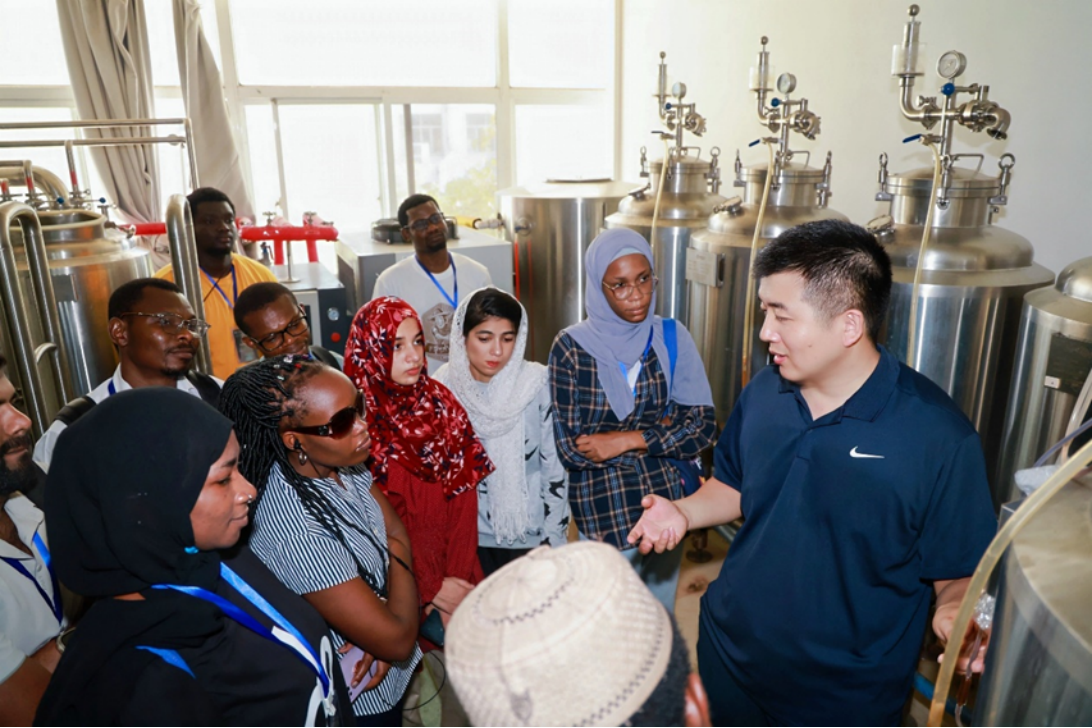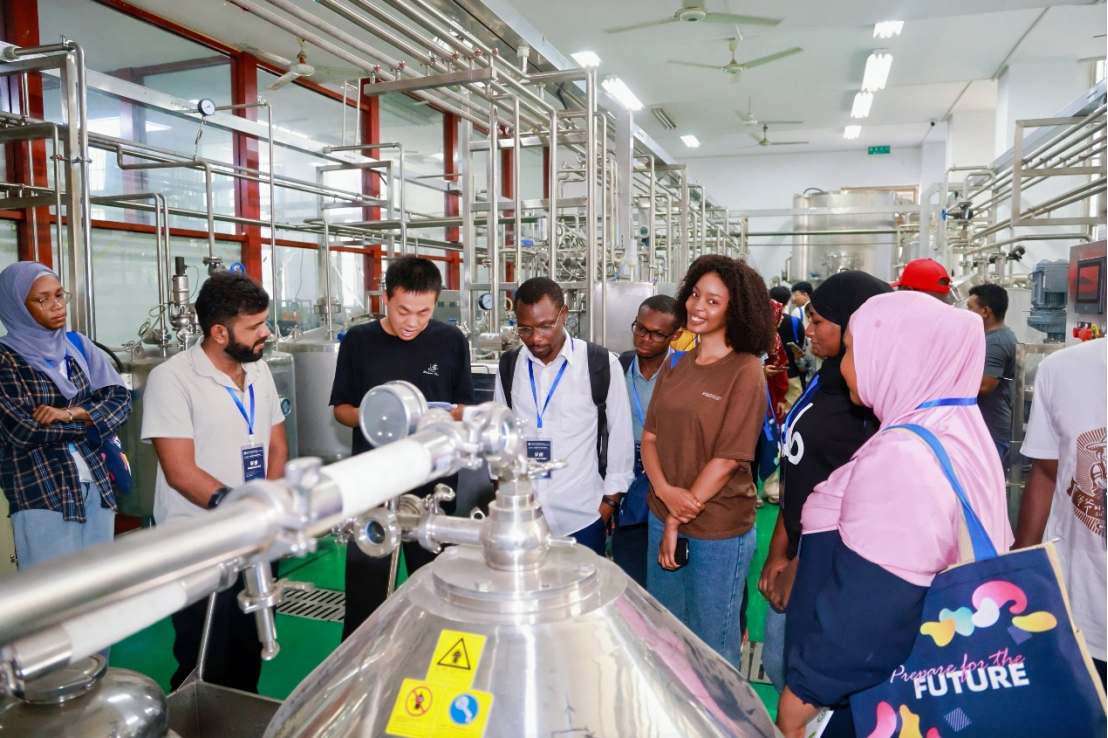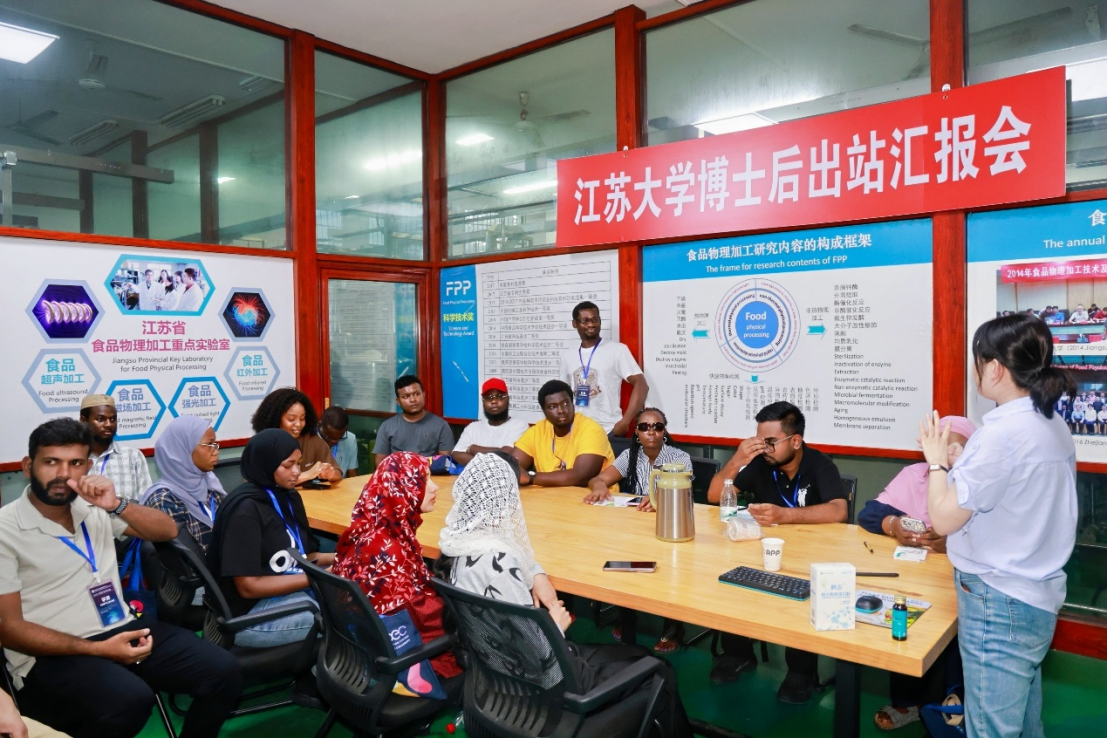To further promote international exchange and showcase the university’s achievements in food science and technology, more than ten international students from countries including Belarus, Serbia, Vietnam, Guyana, Solomon Islands, Papua New Guinea, and Guinea visited the School of Food and Biological Engineering at Jiangsu University on October 18. Themed “Exploring the Charm of China’s Food Technology Innovation,” the visit provided an in-depth look into the school’s cutting-edge research and industrial applications.
The event featured guided tours led by faculty members who introduced the visitors to the pilot laboratories for beer brewing and peptide production, as well as the Food Physical Processing Research Institute. The program offered participants a closer understanding of Jiangsu University’s advancements in intelligent food processing and functional food development.
In the beer brewing pilot laboratory, the students learned about key brewing processes such as malt saccharification, fermentation, filtration, and maturation. Through on-site demonstrations and smart equipment displays, they observed how traditional brewing techniques are being integrated with digital and intelligent control systems. A student from Serbia remarked, “This is very different from the traditional brewing methods in my country. The technology here makes the process much more precise and efficient.”

The group then visited the peptide production pilot laboratory, where instructors introduced advanced extraction, separation, and purification technologies for bioactive peptides. The students were particularly interested in the diverse applications of peptides in health food and nutritional supplements and engaged in active discussions on their potential role in promoting human health.

At the Food Physical Processing Research Institute, the students explored three product series independently developed by the school — propolis-based products, peptide-based products, and pet food products. The exhibits demonstrated the innovative use of natural bioactive compounds, the development of high-value functional foods, and the successful industrial transformation of research outcomes. The visitors expressed great enthusiasm for how scientific research at Jiangsu University is being effectively translated into real-world applications.

Throughout the visit, lively discussions took place between faculty members and international students on topics such as differences in food processing technologies across countries, emerging trends in functional food development, and food safety regulation systems. The students commented that the visit deepened their understanding of China’s food science and engineering achievements and strengthened their confidence in pursuing future cooperation and academic exchanges with Chinese universities.

This activity not only highlighted the School of Food and Biological Engineering’s achievements in research innovation, experimental teaching, and technology transfer, but also provided a valuable platform for cross-cultural and academic exchange. Looking ahead, the school will continue to promote education reform with a global perspective, enhance the international dissemination of research outcomes, and contribute to Jiangsu University’s goal of becoming a globally influential institution in the field of food science and engineering. (School of Food and Biological Engineering)

